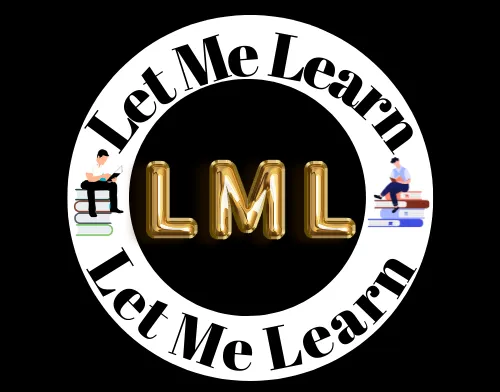Effective Study Techniques for High School Students: Hey there, high schoolers! So, let’s talk about something super important: how to study effectively. I know, studying isn’t always the most exciting thing in the world, but trust me, having some killer study techniques can really make a difference in your grades and overall academic success. So, buckle up and let’s dive into some awesome study tips tailored just for you.
Introduction
Alright, so picture this: you’ve got a ton of homework to do, a big test coming up, and it feels like there’s just not enough time in the day. Sound familiar? Well, don’t sweat it because we’re about to uncover some study secrets that’ll help you conquer your workload like a boss.
Creating an Effective Study Environment
First things first, you need to find your study zone. Whether it’s your bedroom desk, the library, or a cozy corner at Starbucks, pick a spot where you can focus without too many distractions.
Time Management Strategies
Time management is key, my friends. Break down your study sessions into manageable chunks and make a schedule that works for you. Remember to tackle the tough stuff first and save the easier tasks for later.
Active Learning Techniques
Say goodbye to boring study sessions! Instead of just reading through your notes, try more engaging methods like summarizing key points in your own words or teaching the material to a friend. Trust me, it works wonders.
Utilizing Technology Wisely
We live in a digital age, so take advantage of it! Explore educational apps and online resources to supplement your studies, but don’t forget to give your eyes a break from the screen every now and then.
Healthy Habits for Better Learning
A healthy body equals a healthy mind. Make sure you’re eating right, staying hydrated, getting enough exercise, and getting those Z’s. Your brain will thank you later.
Setting Realistic Goals
Dream big, but start small. Set achievable goals for yourself and celebrate your victories along the way. It’s all about progress, not perfection.
Mindfulness and Stress Management
Stress happens, but it doesn’t have to ruin your study sesh. Practice mindfulness techniques like deep breathing or taking short breaks to clear your mind and recharge.
Seeking Help When Needed
Don’t be afraid to ask for help if you’re struggling. Whether it’s from your teachers, classmates, or a tutor, there’s no shame in getting a little extra support.
Review and Revision Techniques
Repetition is key to retention. Schedule regular review sessions to reinforce what you’ve learned and don’t be afraid to ask for feedback to help improve your understanding.
Exam Preparation Strategies
When it comes to exams, preparation is everything. Take practice tests, make flashcards, and don’t leave studying until the last minute. You’ve got this!
Handling Procrastination
We’ve all been there, but procrastination is the enemy of productivity. Break tasks into smaller chunks set deadlines for yourself, and use tricks like the Pomodoro Technique to stay on track.
Developing Critical Thinking Skills
High school is all about learning how to think, not just what to think. Question everything, analyze information critically, and don’t be afraid to think outside the box.
Balancing Extracurricular Activities
Life isn’t all about schoolwork. Make time for the things you love, whether it’s sports, music, or volunteering. Just remember to find a balance between your extracurriculars and your studies.
Conclusion Well, there you have it, folks: a crash course in effective study techniques for high school students. By creating a killer study environment, managing your time wisely, and staying healthy and focused, you’ll be acing th
1. How can I create an effective study environment?
A– Find a quiet, comfortable spot with minimal distractions, whether it’s at home, in the library, or elsewhere.
2. What are some time management strategies I can use?
A- Break your study sessions into manageable chunks, prioritize tasks, and tackle difficult subjects first.
3. What are active learning techniques, and how can I use them?
A- Active learning involves engaging with the material actively, such as summarizing key points in your own words or teaching the content to a friend.
4. How can I utilize technology to aid my studies?
A- Explore educational apps and online resources for supplemental learning, but remember to take breaks from screens to rest your eyes.
5. What are some healthy habits that can improve my learning?
A- Eating well, staying hydrated, exercising regularly, and getting enough sleep are essential for optimal brain function
6. How do I set realistic goals for myself?
A- Start with achievable goals and celebrate your progress along the way, focusing on gradual improvement rather than perfection
7. What are some mindfulness techniques to manage stress?
A– Practice deep breathing, take short breaks to clear your mind, and incorporate mindfulness exercises into your routine.
8. When should I seek help if I’m struggling with my studies?
A– Don’t hesitate to ask for assistance from teachers, classmates, or tutors whenever you encounter challenges.
9. What are effective review and revision techniques?
A-Schedule regular review sessions to reinforce learning, and seek feedback to improve understanding.
10. How can I best prepare for exams?
A- Take practice tests, create flashcards, and avoid last-minute cramming by studying consistently over time
11. How can I overcome procrastination?
– Break tasks into smaller, manageable chunks, set deadlines for yourself, and use productivity techniques like the Pomodoro Technique.
12. What are some strategies for developing critical thinking skills?
A- Question assumptions, analyze information critically, and practice thinking creatively and independently.
13. How do I balance extracurricular activities with my studies?
A- Prioritize your commitments, schedule dedicated study time, and find a balance between academic responsibilities and personal interests.
14. Any final tips for effective studying?
A- Create a supportive study environment, manage your time effectively, stay healthy and focused, and remember to celebrate your successes along the way.

